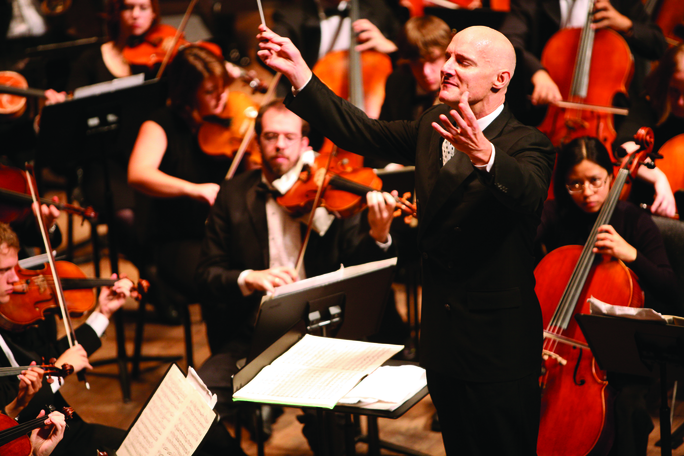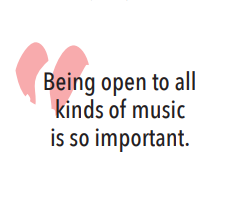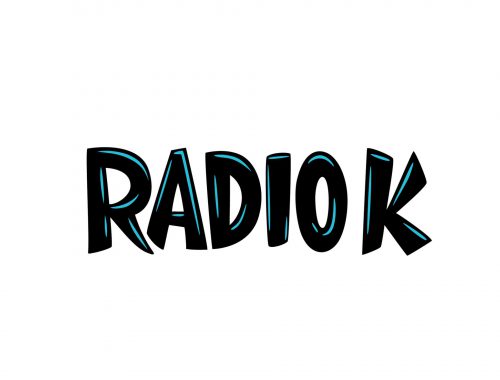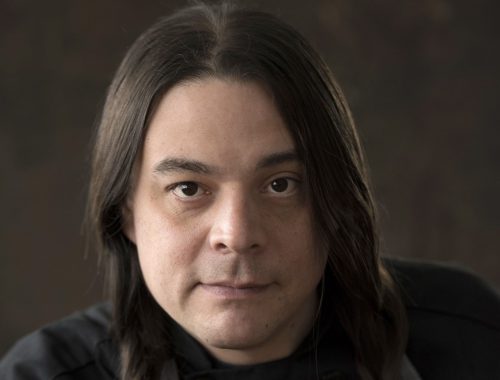
Future Classical
Being open to all kinds of music is so important.
There is a common misconception about classical music: that the genre is dated and static. Perhaps it’s because the name itself implies conservatism and a fixation on past forms, and performing variations on past compositions is more prevalent in classical music than any other genre.
Whatever the case, in the minds of many musicians, fans and academics, classical music is still a developing and relevant genre. Even after five decades, Mark Russell Smith, the artistic director of Orchestral Studies at the University of Minnesota, still feels every concert he goes to is a new experience.
“Orchestral music isn’t a stuffy, dead thing,” Smith says. “It’s a perception more than a reality. Being open to all kinds of music is so important.”

Ernesto Estigarribia, a doctoral candidate in Orchestral Conducting at the U of M’s school of music, considers his involvement like a relationship. “It continues to evolve throughout your life. And the more you know, the more tools you have to engage meaningfully with it,” he says.
A great way to begin growing this relationship is to attend a live performance yourself. While there are certainly some orchestras that are outside most students’ price range, many are much more affordable and often provide discounts for students.
Attending an orchestra performance also provides an increasingly rare and important opportunity in our fast-paced culture to reflect and engage with what we’re experiencing.
“We’re a visual culture and our attentions are constantly divided,” Smith says. “By allowing ourselves to sink into an aural experience where we bring our own interpretations as we listen, we allow ourselves to take a journey.
“Every concert is a unique experience, and part of that uniqueness is that you’re a part of it.”
New technologies also provide ways to get involved with the genre. Kelsey Sather, a member of the U of M Symphony Orchestra, is happy that classical music is becoming more accessible through music streaming sites such as Spotify.
“It’s at the tip of your fingers now,” Sather says. “Classical study music playlists are great for reaching people who otherwise wouldn’t listen to classical music.”
And once people start listening to and interpreting classical music for themselves, Smith believes that it’s very easy to get hooked and start a lifelong relationship with it. “If people become open to it, it’s an incredible thing,” Smith says. “Once a person gets there, they’re sucked into it.”










